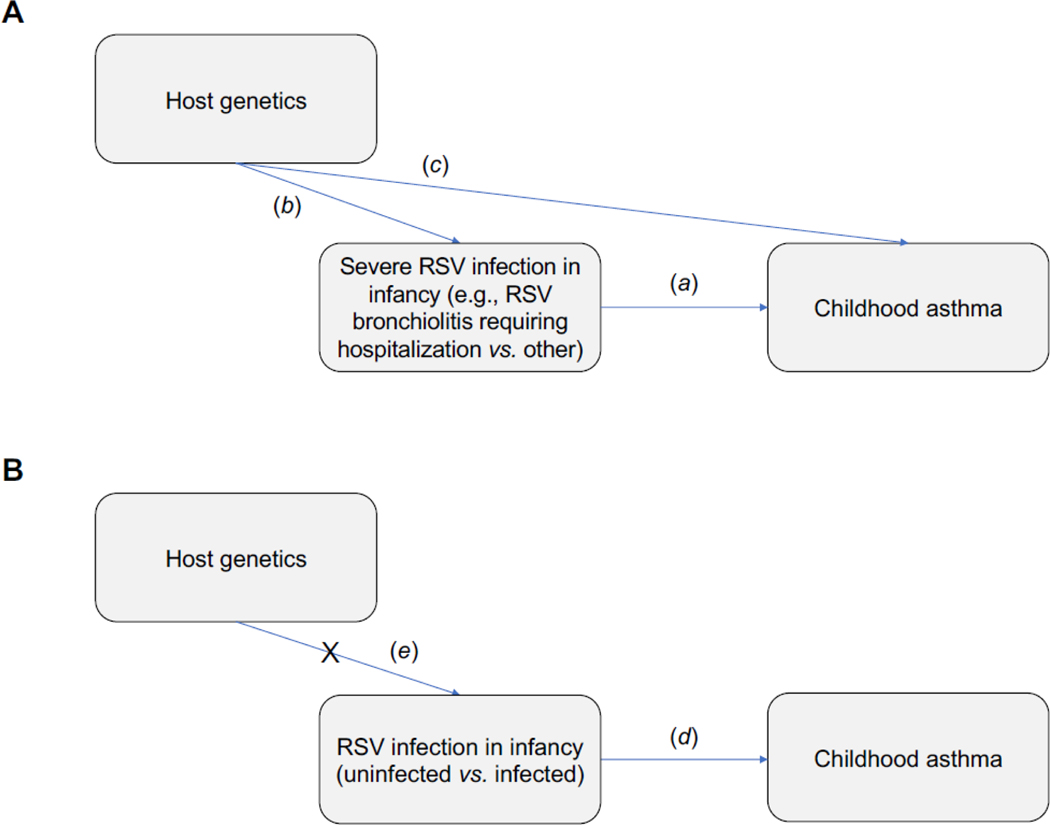Figure 1:
Graphical representation showing the confounding effect of host genetics on the potential causal relationship between RSV infection in infancy and childhood asthma. (1A) Prior studies in this field have focused exclusively on severe RSV infection (usually defined as the presence vs. absence of RSV bronchiolitis requiring hospitalization) in infancy with childhood asthma (a) and have thus lacked a true control group of children without RSV infection in infancy. Furthermore, because both the severity of an RSV infection and the onset of childhood asthma may share a common genetic origin, or an RSV bronchiolitis requiring hospitalization in infancy may simply represent the first acute asthma exacerbation in an otherwise genetically predisposed child, these studies were highly susceptible to confounding by host genetics (b and c). (1B) In the current study, we examined the effect of being uninfected with RSV in infancy on the development of childhood asthma (d) and thus included a true control group of children not infected with RSV in the first year of life. In addition, because RSV is ubiquitous and nearly everyone is infected with it by age 2–3 years, being uninfected vs. infected with RSV in infancy is a natural event and less likely to be associated with host genetics (e). Hence, our study design is likely to mitigate confounding by shared genetic susceptibility. Definition of abbreviations: RSV = Respiratory syncytial virus.

